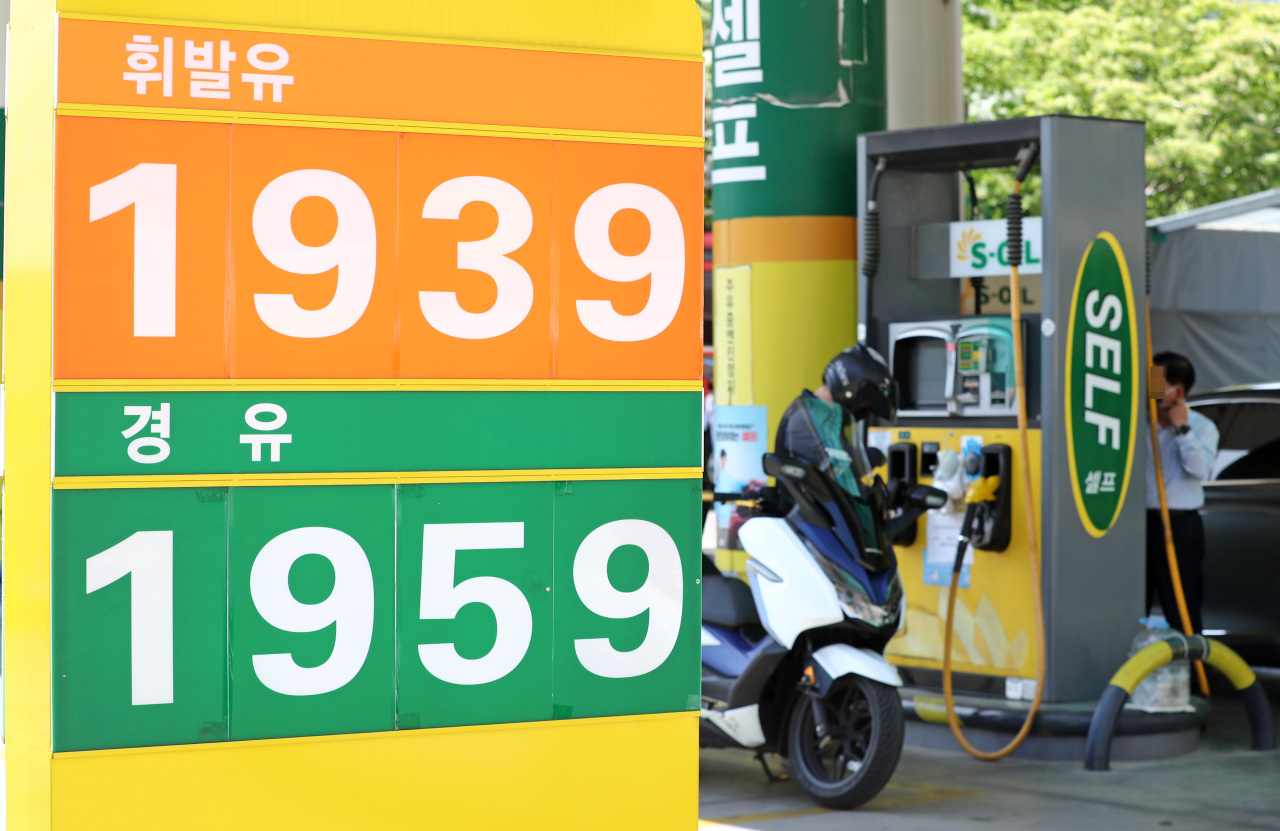
(Yonhap)
The war between Russia and Ukraine, and extended global supply disruptions are feared to sap South Korea's corporate investment and exports, and add upward pressure on inflation, the finance ministry said Friday.
The South Korean economy faces heightened external uncertainty, as global economic downside risks have heightened amid major central banks' monetary tightening and China's COVID-19 lockdowns of major cities, the ministry said in its monthly economic assessment report, called the Green Book.
"Job recovery and the lifting of virus curbs have eased some constraints on consumption, but the Ukraine crisis and the prolonged global supply disruptions are feared to hamper investment and sap exports recovery, while continuing to put upward pressure on prices," the report said.
Concerns about stagflation, a mix of slumping economic growth and high inflation, have arisen, as high inflation would eat into people's purchasing power, hampering economic growth.
Russia's invasion of Ukraine has driven up crude oil and other commodity prices, putting upward pressure on inflation. South Korea heavily relies on imports for most of its energy needs.
South Korea's consumer prices grew at the fastest pace in more than 13 years in April amid soaring fuel prices and the economic recovery. Consumer prices spiked 4.8 percent on-year in April, a pickup from a 4.1 percent gain in March.
Exports grew 12.6 percent on-year in April, extending their gains to the 18th straight month on the back of demand for chips and petroleum products. But the country posted a trade deficit for the second consecutive month, as high energy prices jacked up its import bills.
The finance ministry dismissed concerns that the country may post both a trade deficit and a current account shortfall this year due to soaring energy prices.
South Korea logged a current account surplus for the 23rd straight month in March, but the surplus shrank due to high oil prices.
The central bank said there is a possibility of the country posting a current account deficit in April due to growing energy bills and a hike in dividend payouts.
"For the whole year, South Korea's current account is expected to be in the black," Lee Seung-han, a ministry official, told reporters.
The government report showed sales at department stores and card spending grew at a faster pace in April than in March amid relaxed virus curbs.
Card spending rose 13.8 percent on-year last month, marking the 15th straight month of gains. The reading accelerated from a 7.3 percent on-year increase in March.
Sales at department stores increased 15.6 percent on-year in April after rising 4.1 percent a month ago. But domestic sales of autos slid 12.3 percent on-year, extending their falls into the second month.
South Korea lifted almost all social distancing rules on April 18 in its efforts to return to pre-pandemic normalcy as the fast spread of the omicron variant slowed. (Yonhap)






